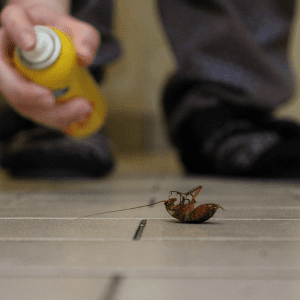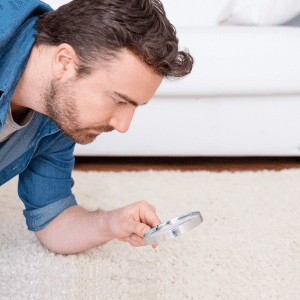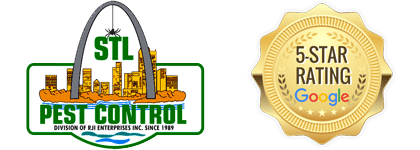

When unwanted pests invade your St. Louis home, the temptation to handle the problem yourself can be strong. DIY pest control solutions are often marketed as quick fixes that save time and money. However, what these solutions don’t advertise are the potential risks and dangers involved. Before you grab that over-the-counter pesticide or try a home remedy, consider the following top 10 dangers of DIY pest control.
1. Health Risks from Chemical Exposure
Many DIY pest control products contain potent chemicals that can be harmful if misused. Without proper training, you may expose yourself and your family to toxic substances. Symptoms of pesticide poisoning can range from mild skin irritations to severe respiratory issues. Children and pets are especially vulnerable to these risks due to their smaller size and developing bodies.
- Toxic Ingredients: DIY products often contain harmful chemicals like organophosphates.
- Improper Use: Lack of training can lead to overuse or incorrect application.
- Vulnerable Individuals: Kids and pets are more susceptible to poisoning.
2. Ineffective Treatment Methods
Pests like termites, bed bugs, and rodents require specialized knowledge to eliminate effectively. DIY methods often fail to address the root of the problem, leading to recurring infestations. Ineffective treatments not only waste your time and money but also allow the pest population to grow, exacerbating the issue.
- Superficial Solutions: Over-the-counter products may only kill visible pests.
- Resistance Development: Pests can become resistant to common DIY chemicals.
- Hidden Infestations: Pests may nest in unseen areas inaccessible to DIY treatments.
3. Damage to Property
Incorrect application of pest control substances can cause significant damage to your home. For example, using too much liquid pesticide might seep into your walls, damaging electrical wiring or insulation. Additionally, some pests like termites can cause structural damage if not properly eradicated, leading to costly repairs down the line.
- Structural Damage: Termites and carpenter ants can compromise the integrity of your home.
- Chemical Damage: Overuse of products can deteriorate materials like wood and drywall.
- Fire Hazards: Improper use of flammable chemicals can lead to fires.
4. Misidentification of Pests
Accurately identifying the type of pest is crucial for effective treatment. DIY approaches often rely on generic solutions that may not work for specific pests. Misidentifying a pest can lead to using the wrong treatment method, which is not only ineffective but could also attract more pests or harm beneficial insects.
- Wrong Treatments: Misidentification leads to ineffective control methods.
- Wasted Resources: Time and money spent on the wrong solutions.
- Increased Infestation: Delayed proper treatment allows pests to multiply.
5. Environmental Harm
Improper disposal of pesticides and chemicals can lead to environmental contamination. These substances can seep into the soil and waterways, harming local wildlife and ecosystems. Professional pest control companies follow strict guidelines for chemical use and disposal to minimize environmental impact.
- Water Pollution: Chemicals can leach into groundwater and rivers.
- Soil Degradation: Pesticides may kill beneficial soil organisms.
- Wildlife Impact: Non-target species, including pollinators, can be harmed.
6. Risk of Fire and Explosions
Some DIY pest control methods involve flammable substances or generate heat. Foggers and bug bombs, for instance, can be highly flammable if not used correctly. There have been instances where improper use of these products has led to house fires or explosions, posing significant safety risks.
- Explosive Vapors: Accumulation of flammable gases can ignite.
- Electrical Ignition: Contact with appliances can cause fires.
- Personal Injury: Risk of burns and other injuries during application.
7. Legal Repercussions
Certain pests are protected under state and federal laws. For example, bats are a protected species in Missouri. Attempting to remove or exterminate them without proper permits can result in legal penalties. Professional pest control services are knowledgeable about these regulations and can handle such situations lawfully.
- Fines and Penalties: Legal action for harming protected species.
- Permit Requirements: Certain removals require official authorization.
- Regulatory Compliance: Navigating complex wildlife protection laws.
8. Worsening the Infestation
Some DIY treatments can actually make the problem worse. Disturbing a wasp nest without proper equipment can provoke the insects, leading them to become aggressive. Similarly, incomplete treatments may cause pests to scatter and infest other areas of your home, making eradication more difficult.
- Pest Dispersion: Incomplete treatments can cause pests to spread.
- Aggressive Behavior: Some pests become hostile when threatened.
- Secondary Infestations: New pest problems may arise as a result.
9. Hidden Costs
While DIY solutions may seem cost-effective initially, the hidden costs can add up. Purchasing multiple products, repairing property damage, and dealing with health issues can become expensive. In contrast, professional services provide a comprehensive solution that can save you money in the long run.
- Product Expenses: Repeated purchases of ineffective treatments.
- Medical Bills: Costs from health issues due to chemical exposure.
- Home Repairs: Fixing damage caused by pests or DIY mistakes.
10. Lack of Warranty and Assurance
Professional pest control companies offer warranties and follow-up services to ensure the problem is fully resolved. DIY methods lack this assurance, leaving you without recourse if the treatment fails. This can lead to ongoing frustration and additional expenses as you attempt multiple solutions.
- No Guarantees: DIY efforts don’t come with a success guarantee.
- Continuous Infestations: Ongoing pest issues without professional intervention.
- Peace of Mind: Lack of confidence in DIY results versus professional services.
Frequently Asked Questions
- Can I handle small pest problems myself? While it might be tempting to tackle minor infestations, pests can reproduce rapidly and spread unseen. Professional assessments ensure the problem is fully addressed before it escalates.
- Are the chemicals used by professionals safe for my family and pets? Yes, STL Pest Control uses environmentally friendly and EPA-approved products. Our technicians are trained to apply them safely, minimizing any risks to your loved ones.
- How often should I have my home inspected for pests? We recommend at least an annual inspection. However, if you’ve had previous infestations or live in a high-risk area, more frequent inspections might be beneficial.
- What pests are common in St. Louis that I should be aware of? Common pests include termites, rodents, ants, bed bugs, and mosquitoes. Each requires specific treatments, which our team is well-equipped to handle.
- Do you offer warranties or guarantees on your services? Absolutely! We offer warranties on our treatments and provide follow-up services if the pests return within a certain period. Your satisfaction is our top priority.
Why Choose STL Pest Control for Your Pest Problems
When it comes to protecting your home and family from pests, don’t leave it to chance. STL Pest Control offers professional, reliable, and safe pest management solutions tailored to St. Louis homeowners. Our team of certified experts utilizes state-of-the-art equipment and environmentally friendly methods to ensure effective eradication.
- Certified Experts: Our technicians are trained and experienced in dealing with all types of pests common to St. Louis.
- Safe and Effective Methods: We prioritize the safety of your family and pets by using eco-friendly products.
- Customer Satisfaction Guarantee: We stand behind our work and offer follow-up services to ensure your pest problem is resolved.
- Customized Solutions: We assess your specific situation to provide the most effective treatment plan.
- Affordable Pricing: Competitive rates with no hidden costs.
Contact STL Pest Control today to schedule a consultation. Let us handle the pests so you can enjoy a safe and comfortable home.

